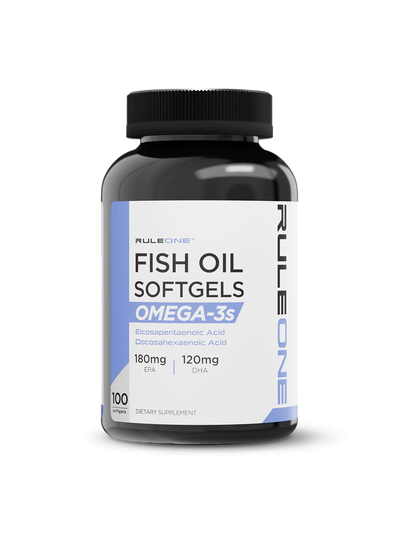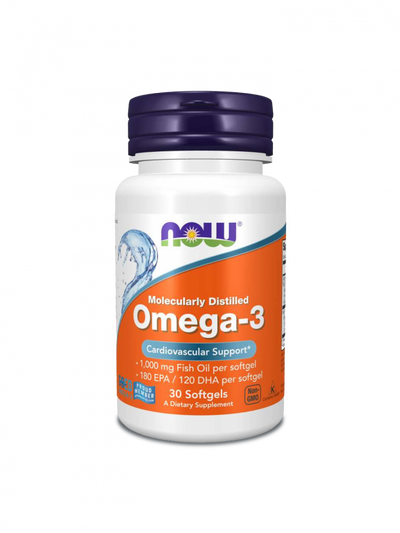Omega-3 fatty acids are essential nutrients that play a crucial role in various aspects of human health, particularly in heart health. There are three main types of omega-3 fatty acids: alpha-linolenic acid (ALA), eicosapentaenoic acid (EPA), and docosahexaenoic acid (DHA). While ALA is primarily found in plant sources like flaxseeds and walnuts, EPA and DHA are predominantly found in fatty fish such as salmon, mackerel, and sardines.
The role of omega-3 supplements in heart health is well-studied, and the benefits are attributed to their ability to:
-
Reduce Triglyceride Levels:
Omega-3 fatty acids, specifically eicosapentaenoic acid (EPA) and docosahexaenoic acid (DHA), are known to effectively reduce blood triglyceride levels. Elevated triglyceride levels are linked to a higher risk of heart disease. The mechanisms through which EPA and DHA achieve this include their ability to regulate lipid metabolism, decrease triglyceride production in the liver, and enhance the clearance of triglycerides from the bloodstream. As a result, incorporating omega-3-rich foods or supplements into one's diet can contribute to a healthier lipid profile and potentially lower the risk of cardiovascular issues associated with elevated triglycerides.
-
Lower Blood Pressure:
Omega-3 fatty acids, such as eicosapentaenoic acid (EPA) and docosahexaenoic acid (DHA), have demonstrated the potential to lower blood pressure, particularly in individuals with hypertension. These fatty acids exert their beneficial effects through anti-inflammatory mechanisms and by promoting vasodilation, which enhances the flexibility and dilation of blood vessels. The anti-inflammatory properties of omega-3s contribute to reducing vascular inflammation, while their vasodilatory effects help relax blood vessels, facilitating improved blood flow and overall blood pressure regulation. Including omega-3-rich foods or supplements in the diet can be a valuable strategy for managing hypertension and promoting cardiovascular health. However, individuals with existing medical conditions or those on medications should consult with healthcare professionals before initiating omega-3 supplementation.

-
Prevent Arrhythmias:
Omega-3 fatty acids, particularly eicosapentaenoic acid (EPA) and docosahexaenoic acid (DHA), exhibit anti-arrhythmic properties, playing a crucial role in regulating the heart's rhythm. These fatty acids can help prevent abnormal heartbeats, known as arrhythmias, which are associated with an increased risk of sudden cardiac death. Omega-3s influence ion channels and membrane stability in cardiac cells, contributing to the maintenance of a steady and coordinated heart rhythm. Incorporating omega-3-rich foods or supplements into the diet may be beneficial in reducing the incidence of arrhythmias and promoting cardiovascular health. However, individuals with pre-existing heart conditions or those taking medications should seek advice from healthcare professionals before starting omega-3 supplementation to ensure its safety and efficacy in their specific case.
-
Reduce Inflammation:
Omega-3 fatty acids, specifically eicosapentaenoic acid (EPA) and docosahexaenoic acid (DHA), play a crucial role in reducing inflammation, which is a key factor in the development of cardiovascular diseases. These fatty acids have anti-inflammatory effects that can help mitigate chronic inflammation and protect the heart. By influencing various inflammatory pathways and suppressing the production of pro-inflammatory molecules, omega-3s contribute to a more balanced and controlled inflammatory response. This anti-inflammatory action is vital in preventing the progression of atherosclerosis and reducing the overall risk of cardiovascular events. Incorporating omega-3-rich foods or supplements into the diet is a valuable strategy for promoting cardiovascular health by addressing the inflammatory component of heart disease. However, individuals with underlying health conditions should consult with healthcare professionals before initiating omega-3 supplementation to ensure its suitability for their specific circumstances.
-
Improve Cholesterol Levels:
Omega-3 fatty acids, particularly eicosapentaenoic acid (EPA) and docosahexaenoic acid (DHA), have demonstrated a beneficial impact on cholesterol levels. While the overall effect on total cholesterol may be modest, omega-3s contribute to a favorable lipid profile by increasing levels of "good" high-density lipoprotein (HDL) cholesterol. Additionally, they help improve the ratio of HDL to "bad" low-density lipoprotein (LDL) cholesterol. This shift towards a higher HDL-to-LDL ratio is important for cardiovascular health, as higher levels of HDL cholesterol are associated with a reduced risk of heart disease. The mechanisms behind these effects involve the regulation of lipid metabolism and enhanced clearance of cholesterol from the bloodstream. Incorporating omega-3-rich foods or supplements into the diet can be a valuable strategy for optimizing cholesterol levels and supporting overall heart health. Individuals with existing medical conditions or those on medications should consult with healthcare professionals before initiating omega-3 supplementation.

-
Aid in Blood Clot Prevention:
Omega-3 fatty acids, such as eicosapentaenoic acid (EPA) and docosahexaenoic acid (DHA), possess mild anticoagulant properties, acting as natural blood thinners. These properties can be beneficial in reducing the risk of blood clots that may lead to serious cardiovascular events such as heart attacks and strokes. Omega-3s influence various aspects of the blood clotting process, including platelet aggregation and clot formation, promoting a more balanced and less clot-prone state. Incorporating omega-3-rich foods or supplements into the diet can contribute to a lower risk of excessive blood clotting, potentially enhancing cardiovascular health. However, individuals with bleeding disorders, those taking blood-thinning medications, or those scheduled for surgery should consult with healthcare professionals before starting omega-3 supplementation to ensure safety and appropriate dosages.
-
Support Arterial Health:
Omega-3 fatty acids, particularly eicosapentaenoic acid (EPA) and docosahexaenoic acid (DHA), play a role in supporting arterial health by contributing to the maintenance of flexible and functional arteries. These fatty acids help reduce arterial stiffness, a condition associated with aging and the development of cardiovascular diseases. The anti-inflammatory and vasodilatory effects of omega-3s contribute to improved endothelial function, which is essential for the health of the inner lining of blood vessels. By promoting arterial flexibility and reducing stiffness, omega-3s support optimal blood flow, lower blood pressure, and decrease the overall strain on the cardiovascular system. Including omega-3-rich foods or supplements in the diet can be a valuable strategy for maintaining arterial health and reducing the risk of conditions related to arterial dysfunction. Individuals with pre-existing cardiovascular conditions should consult with healthcare professionals before initiating omega-3 supplementation to ensure its appropriateness for their specific health status.
Conclusion:
To incorporate omega-3 fatty acids into their diet, individuals can consume fatty fish regularly or consider omega-3 supplements. These supplements are available in various forms, including fish oil capsules, krill oil, and algae-based supplements (suitable for those following a vegetarian or vegan diet). It's essential to consult with a healthcare professional before starting any supplementation regimen, especially for individuals with existing medical conditions or those taking medications, to ensure compatibility and appropriate dosage. Additionally, a balanced diet rich in a variety of nutrient-dense foods contributes to overall heart health.








